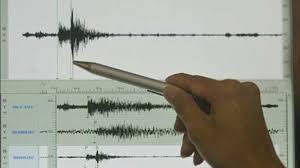
Hydraulic fracturing in the Permian Basin of West Texas is being blamed in part for some of the earthquakes in the region according to a new study by the University of Texas at Austin.
“The research done through this new study in West Texas, using a statistical approach to associate seismicity with oil and gas operations, suggests that some seismicity is more likely related to hydraulic fracturing than saltwater disposal,” Alexandros Savvaidis, a research scientist and manager of the TexNet Seismic Monitoring Program, said in a statement.
He and other scientists released their study that suggested earthquakes in Reeves, Pecos and Culberson counties might have been caused by the hydraulic fracturing.
TexNet seismographs recorded at least 209 earthquakes across Texas so far this year. The strongest occurred on Oct. 1 near Snyder and measured 3.8 magnitude. In 2018, there were 192 earthquakes recorded by TexNet.
Saltwater disposal wells were largely suspected of causing earthquakes in Oklahoma and prompted the Oklahoma Corporation Commission to request operators to put the brakes on their operations.
In Texas, the Railroad Commission, the agency that regulates the oil and gas industry adopted stricter regulations for saltwater disposal wells in 2014.
But this latest study points the finger at fracking rather than the wastewater disposal wells.
“Our results suggest some earthquakes in west Texas are more likely due to hydraulic‐fracturing than salt‐water disposal. Quality measures and spatial patterns of earthquakes relocated using this proxy ground‐truth calibration suggest a real improvement in absolute location accuracy,” stated the study.
Click here to ready the study.



